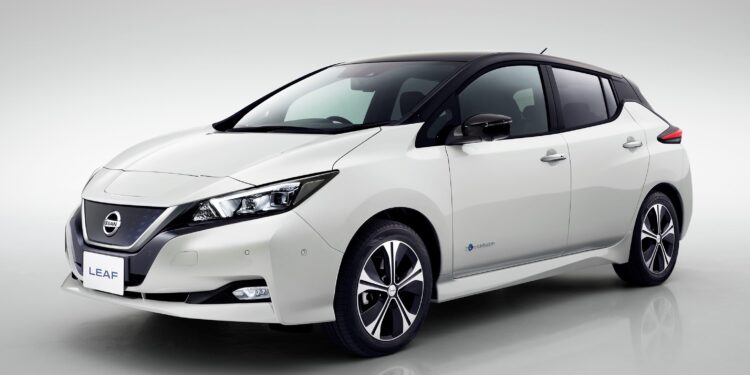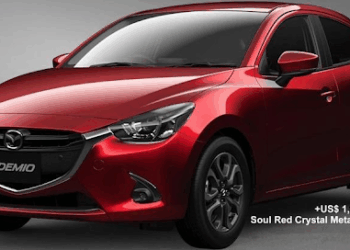Electric cars are no longer a futuristic luxury reserved for Europe or Asia—they’re now making serious inroads into the Kenyan automotive market. With rising fuel prices and a growing focus on clean energy, more drivers in Nairobi, Mombasa, Kisumu, and beyond are turning to electric vehicles (EVs) as a smart and sustainable alternative.
But can you really afford to go electric in 2025? The answer is yes.
This article explores the most affordable electric cars for Kenyan drivers this year. We focus on models that are within reach for middle-income earners, have low running costs, and are practical for local roads. Whether you’re looking to reduce fuel costs, go green, or simply keep up with the latest technology, there’s something here for you.
Why Consider an Electric Car in Kenya?
Before diving into the list, here’s why EVs are becoming more appealing:
- Zero fuel costs: Electricity is much cheaper than petrol or diesel, especially if you charge at home.
- Lower maintenance: EVs have fewer moving parts, meaning fewer breakdowns and cheaper servicing.
- Tax incentives: The Kenyan government has reduced import duty and excise tax on electric vehicles.
- Environmental impact: You’re reducing your carbon footprint by choosing an EV over a traditional internal combustion engine.
For the latest updates on EV policy and infrastructure in Kenya, check out Automag Kenya.
1. Nissan Leaf (2014–2017) – The Most Popular Starter EV

The Nissan Leaf is the world’s best-selling electric car—and with good reason. It’s compact, reliable, and one of the most affordable EVs you can find in Kenya today. Early models are available at very competitive prices on the second-hand market.
- Price in Kenya: Ksh. 1.2M – Ksh. 1.7M
- Range per charge: 150–200 km (depending on battery health)
- Charging time: 6–8 hours on standard home socket
- Best for: Nairobi city commuters, Uber/Bolt drivers
Pros:
- Very low running costs
- Easy to maintain
- Compact and perfect for city driving
Cons:
- Limited range for long-distance travel
- Older models may have battery degradation
To find a reliable Nissan Leaf within your budget, visit https://auto24.co.ke/, where new and used electric vehicles are increasingly listed.
2. MG ZS EV (2021–2023) – Family-Friendly and Feature-Rich
If you’re looking for a more modern and spacious electric car, the MG ZS EV is a fantastic pick. This compact electric SUV offers a roomy interior, modern safety features, and a decent electric range—making it ideal for both city and highway use.
- Price in Kenya: Ksh. 2.9M – Ksh. 3.5M
- Range per charge: Up to 320 km
- Charging time: About 7 hours with a home charger
- Best for: Families, long-distance drivers, modern tech lovers
Pros:
- SUV build suits rougher roads
- Higher ground clearance
- Excellent tech and safety features
Cons:
- Still relatively new to the Kenyan market
- Spare parts might be less accessible
Maintenance tip: Schedule regular tire checks—EVs tend to be heavier due to the battery, which affects tire wear over time.
3. BYD Dolphin – Budget Electric Hatchback With Smart Tech
China’s BYD brand is rapidly growing across Africa, and the BYD Dolphin is one of the most affordable full-electric cars with a modern feel. It’s designed as an urban hatchback, with stylish looks, a comfortable interior, and impressive features for the price.
- Price in Kenya: Around Ksh. 2.5M – Ksh. 2.8M
- Range per charge: 300–400 km (depending on variant)
- Charging time: About 7 hours
- Best for: Young professionals and tech-savvy drivers
Pros:
- Exceptional value for money
- Well-equipped with infotainment and safety tech
- Good charging speed
Cons:
- Relatively new in Kenya
- Limited after-sales support (as of now)
4. Renault Zoe (2015–2019) – Compact, Affordable, and European
If you want a small electric car with European flair, the Renault Zoe is a great choice. It’s compact, efficient, and becoming more common on Kenyan roads, especially in Nairobi.
- Price in Kenya: Ksh. 1.8M – Ksh. 2.2M
- Range per charge: 250–300 km
- Charging time: 6–9 hours
- Best for: City-based drivers, eco-conscious users
Pros:
- Smooth ride
- Excellent for narrow city roads
- Quiet and comfortable interior
Cons:
- Not ideal for rugged terrain
- Spare parts are less available outside urban areas
🔗 Want to explore more second-hand EV options? Browse the latest listings on https://auto24.co.ke/, including models like the Leaf, Zoe, and even Tesla imports.
5. Hyundai Kona Electric – Premium Feel, Reasonable Price
Though not the cheapest EV, the Hyundai Kona Electric offers excellent range, build quality, and comfort, making it ideal for those who want a long-term electric investment.
- Price in Kenya: Ksh. 3.5M – Ksh. 4.2M
- Range per charge: Up to 450 km
- Charging time: Fast charging: 1 hour; Standard: 6–7 hours
- Best for: Highway drivers and EV early adopters
Pros:
- Long range
- Great ride comfort
- Loaded with features
Cons:
- Higher price tag
- May require home installation of a faster charger
How to Charge an EV in Kenya
Charging infrastructure is still developing, but it’s growing fast in cities like Nairobi and Mombasa. Some tips:
- Home charging is most common. Install a wall-box charger for efficiency.
- Public stations: Companies like EVChaja and BasiGo are rolling out stations in malls and parking lots.
- Solar + EV: If you live in a sunny area, consider solar panels to charge your car and cut costs further.
Pro Tip: Avoid letting your battery drop below 10% regularly—it reduces battery life over time.
Final Thoughts: Is It Time to Switch to Electric?
Yes—if your driving habits involve city commutes or moderate travel, switching to an electric car in Kenya is now a realistic and smart choice. EVs like the Nissan Leaf, BYD Dolphin, and Renault Zoe provide budget-friendly options with low maintenance costs and zero fuel bills.
As the market grows and more units arrive through dealers and platforms like Auto24 Kenya, expect better pricing, support, and a wider range of EVs to choose from.
For more tips on how to maintain your car, reduce fuel costs, or make the switch to electric, visit Automag Kenya.




